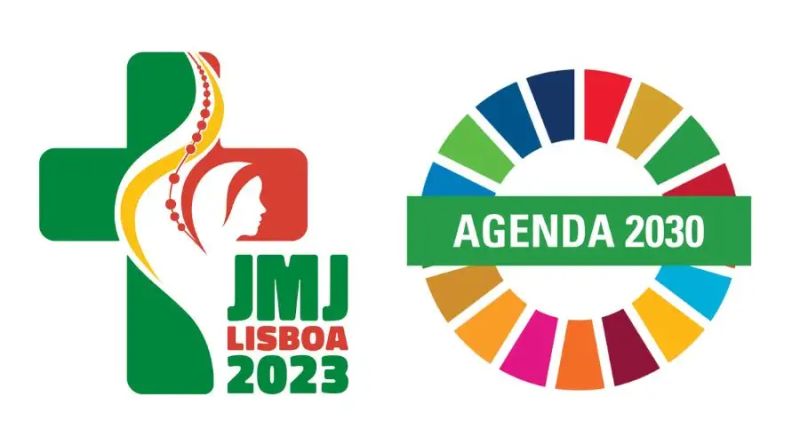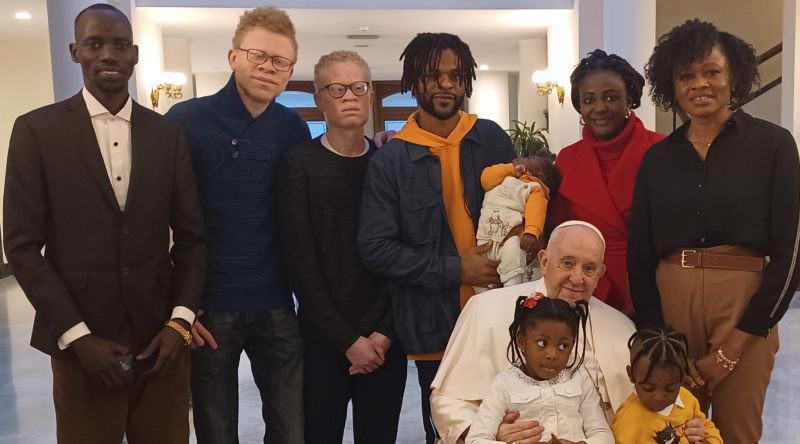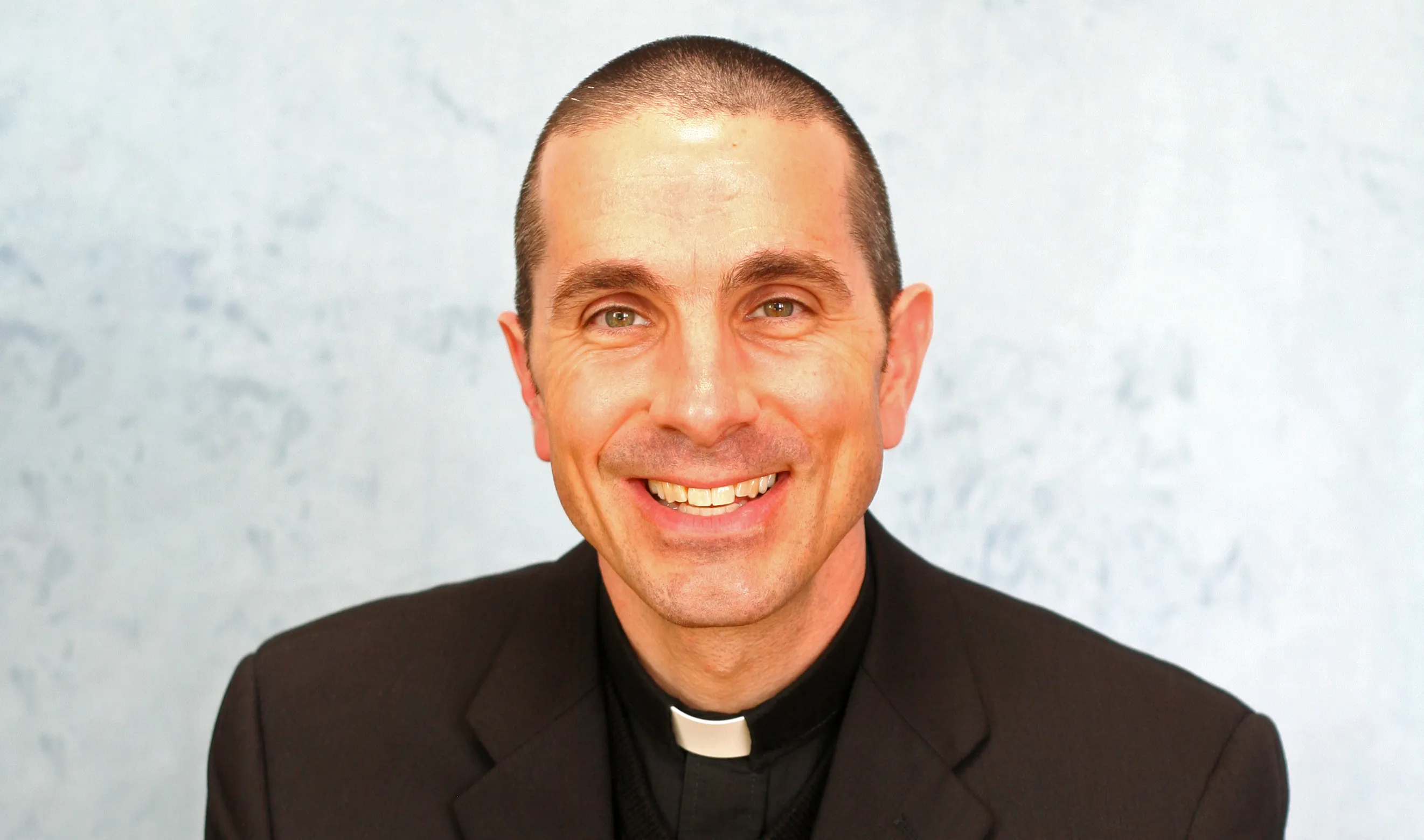 Logos of WYD Lisbon 2023 and the 2030 Agenda. / Credit; WYD and U.N.
Logos of WYD Lisbon 2023 and the 2030 Agenda. / Credit; WYD and U.N.
CNA Newsroom, Jan 31, 2023 / 15:11 pm (CNA).
The bishop of Orihuela-Alicante in Spain, José Ignacio Munilla, called the reference to the United Nations’ Agenda 2030 on the World Youth Day (WYD) website “unnecessary.” However, once the reference was later qualified to read “following the guidelines of the Holy See,” he said he considered not going to WYD in Lisbon — as some have said they would — to be a mistake, because it would cause a “wound in communion.”
In the Jan. 30 edition of the “Sixth Continent” program on Radio María Spain, Munilla responded to the “very many” questions that have been addressed to him regarding the inclusion of references to Agenda 2030 on the website for World Youth Day in Lisbon.
The 2030 Agenda for Sustainable Development is “the most comprehensive blueprint to date for eliminating extreme poverty, reducing inequality, and protecting the planet,” according to the United Nations website.
There is a section on sustainability on the WYD website that includes a commitment letter, which says: “Our mission is to build WYD Lisbon 2023 taking into account the sustainability goals embraced throughout the world, the Laudato Si' goals presented by the Vatican and the United Nations’ Agenda 2030.”
Underneath the letter could be seen the logos of the Agenda 2030 Sustainable Development Goals proposed by the U.N.
Munilla explained that “since there were many complaints, the reference was later qualified. The logos have been removed and the qualification was made that we adhere to Agenda 2030 ‘as it is interpreted according to the Catholic Church.’”
What this qualification literally means is “following the guidelines of the Holy See,” an expression associated with a note signed in 2016 by Archbishop Bernardito Auza, at the time the apostolic nuncio and permanent observer of the Holy See to the United Nations.
Auza’s note makes precisions and clarifications that go further into the value and meaning that the Holy See attaches to Agenda 2030, both regarding its objectives and in the clarification of essential concepts and the methods of application of the proposed goals.
These concepts are mainly those referring to man, his nature and dignity, sexuality, the right to life, the family, and the importance of the foundations of international law in the interpretation and implementation of Agenda 2030 in such relevant issues such as gender, the idea of empowerment, and the so-called right to sexual and reproductive health.
A ‘fair complaint’ in the face of a ‘mistake’
The Spanish prelate acknowledged that the reference to Agenda 2030, a document not signed by the Holy See because it has a voice but not a vote in the United Nations, “has created controversy.”
“What is the WYD page doing making that reference? What need was there to have to make that reference?" asked Munilla, who said that the complaint “is fair” because citing Agenda 2030 “is a mistake.”
“The fact that it has gone away little by little — now I remove the logos, now I say that ‘according to the Catholic Church’ — it’s a kind of rectification without completely rectifying, which makes it clear that a mistake has been made,” the prelate pointed out.
A wound in the communion of the Church
The bishop of Orihuela-Alicante also responded to the question about whether, in view of the confusion that has been caused, it is opportune to go to the youth event with the pope in Lisbon next summer in Europe.
For Munilla “it’s a mistake that there are Catholic movements and schools that have decided not to attend WYD in Lisbon for the mere fact that this inclusion has been made.”
The bishop believes that “they are depriving themselves of a very great good” and, furthermore, “non-attendance creates a wound in the communion of the Church, of youth ministry.”
The prelate considers that the qualification that WYD’s support of Agenda 2030 is “following the guidelines of the Holy See” that has been added onto the controversial letter of commitment “substantially saves some face, although they don’t finish explaining why it’s not eliminated, period.”
“It’s an error to have put that mention on the webpage but it’s also an error to announce that it’s not going away. It’s too bad that this happens and that such a thing is cause for perplexity,” he said.
A qualified but unnecessary statement
At the end of his commentary, Munilla made reference to the conference given by the apostolic nuncio in Spain, Archbishop Bernardito Auza, last Friday at Abat Oliba CEU University in Barcelona in which he explained the position of the Holy See regarding Agenda 2030 from its genesis to its application.
Munilla stressed what Auza said regarding the policy on donations for Agenda 2030, noting that “the most sensitive thing is that when it comes to implementing it, the one who donates determines what program it goes to.”
Thus “a direct link is established between the approval of aid and the adoption of ideologies.” So for example, for some donor nations in order to receive aid for the relief of hunger, the implementation of contraceptive policies is required.
For the prelate, it’s a “poisoned model” that implies “a risk of paternalism that ultimately ends up being an ideological instrument.”
Munilla also emphasized the risk of “declarationist nominalism” expressed by Pope Francis in the U.N. General Assembly, which means that in Agenda 2030 “there are super beautiful words that are utopian.”
To sum up the controversial reference to Agenda 2030 on the website of the World Youth Day in Lisbon, the bishop of Orihuela-Alicante said that “a statement has been rectified that, in its literal meaning by introducing this qualification, it can no longer be said to be wrong. But, obviously, it’s unnecessary.”
This story was first published by ACI Prensa, CNA’s Spanish-language news partner. It has been translated and adapted by CNA.
 Father Georges Lemaitre. / Credit: VRT/YouTube
Father Georges Lemaitre. / Credit: VRT/YouTube











